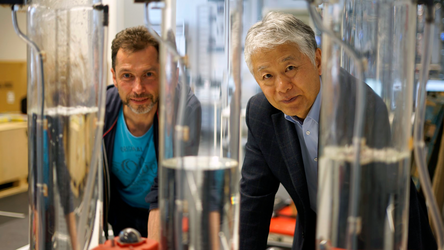With the 2030 Agenda adopted in 2015, the global community under the umbrella of the United Nations committed to 17 Global Goals for Sustainable Development committed itself to sustainable development. This encompasses economic, ecological and social aspects. In doing so, the 2030 Agenda underscores the shared responsibility of all stakeholders: politics, business, science, civil society - and every individual.
In order to live up to this social responsibility, we, as an internationally oriented place of science, study and work, have also set out on the path to becoming a Sustainable Community. Researchers at TU Ilmenau develop innovative technological solutions for the preservation of our natural foundations of life: They work on processes for the production ofgreen hydrogen, explore the fundamentals of "green" sustainable electronics, make our power grids fit for the requirements of the energy transition or further develop electromobility. They are already helping to shape a sustainable world for tomorrow.

















